Chicagoans call lots of places home. We live in two-flats, three-flats, bungalows and skyscrapers. But trailers? Do we live in trailers?
Yes, we do! It turns out hundreds of families live in Chicago’s only trailer park, Harbor Point Estates, which is in the far southeast corner of the city. It sits along the shores of Wolf Lake in the Hegewisch neighborhood, just off 134th Street. The community is so close to Indiana you can fly a kite there, a property manager says.
And beyond the city’s borders, there’s another 18,000 mobile homes in the seven-county metro area, according to estimates by regional planners. Mobile home communities are squeezed between expressways and plopped down in exurban cornfields, from the North Shore to Peotone.
“We’re everywhere," says Terry Nelson, who lives in the Rand Road Community, one of four trailer parks in Des Plaines. “Go down [I]-55 or 57, there’s one at every exit … You can see them when you know to look.”
By the way, folks who work in the manufactured housing industry hate the word “trailer” — it’s too tied to all the worst stereotypes American culture has come up with for this housing. Also out is “mobile home community,” as most homes are not mobile anymore. But residents still mostly talk about their homes as trailers or mobile homes, “las trailas” in Spanish.
Curious City got a question about trailer parks from a listener interested in affordable homeownership. “What is life like in Chicagoland trailer parks?” the listener wanted to know.
So we visited manufactured housing communities in Chicago, Blue Island and Des Plaines to ask residents that question. And we met people with a whole range of experiences. We found some who had moved to the trailer park as a way to make ends meet. We found families looking for peace and safety and a quiet place to raise their kids. We found residents who liked the trailer park because they could live near extended family — adult siblings, cousins — and others who’d adopted neighbors as extended family. We found people living in their familiar mobile home deep into old age. We found folks looking for a foothold to the American Dream.
And we heard how the peculiarities of this form of housing shape life and community. We present them here in photos and audio.
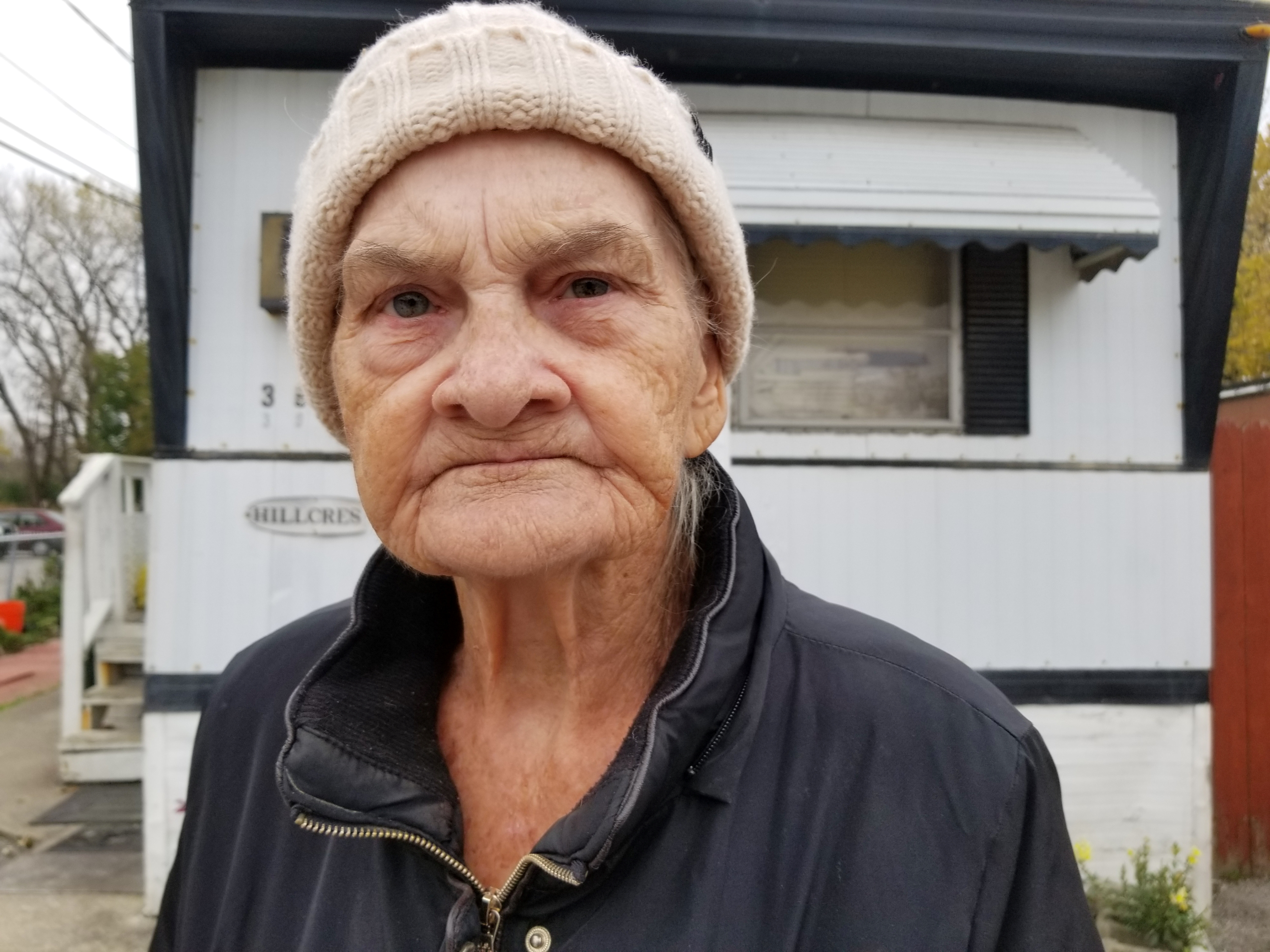
Ellen Ramirez, age 87, is the longest-running resident of Broadway Estates in Blue Island, a community of about 80 trailers. She used to own a home in Markham, but she sold it in 1982 and moved here. She marks 40 years in the community this year, all spent in a two-bedroom trailer she owns near the back of the park.
Ellen spends many days picking up aluminum cans throughout the park, which she then sells to buy food for the community’s cats. She does not necessarily have a favorite trailer. “I like ’em all!” she declares.
There’s an apple tree in the trailer park that grows heavy with fruit in the fall. “I pick up apples here and take ’em home and make pies out of them,” Ellen says.
“Have you lived happy here?” we ask. “Yeah, I’ve been here all this time,” says Ellen.

Broadway Estates has been owned by the same family for three generations. Homes here are all smaller and older, with lots of “tin can”-style trailers with the metal exteriors. One home — for sale at the time we visited — was manufactured by a company that applied for bankruptcy 40 years ago. Trailers here can cost as little as $4,000. Lot rent — the money residents pay each month to rent the land under their trailer — is around $600 per month. Water and utilities are extra. Everybody has a little bit of yard surrounding their trailer. Some are spare, others are overflowing — with bikes and wheelbarrows, broomsticks and trellises, plastic play houses and potted plants.
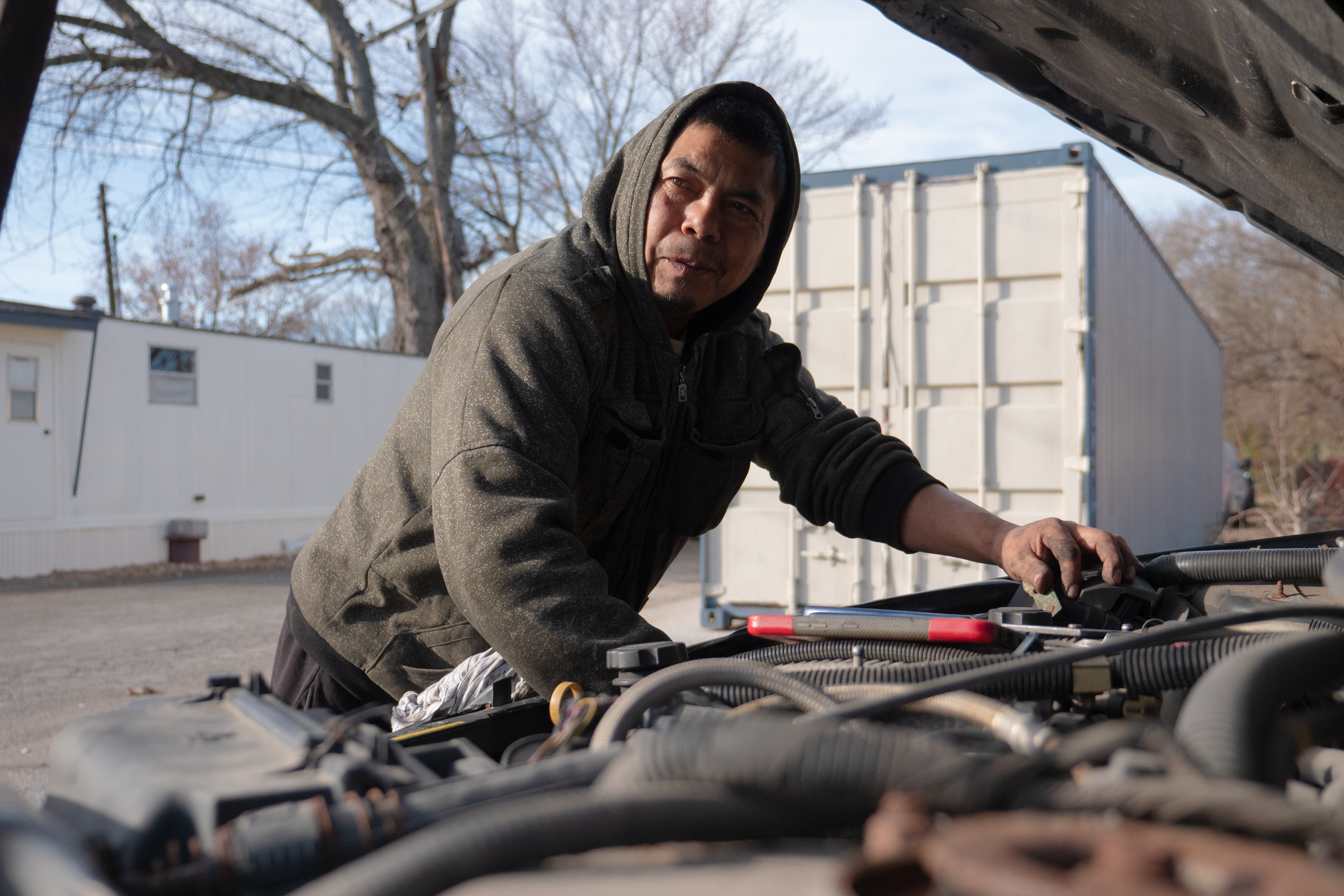
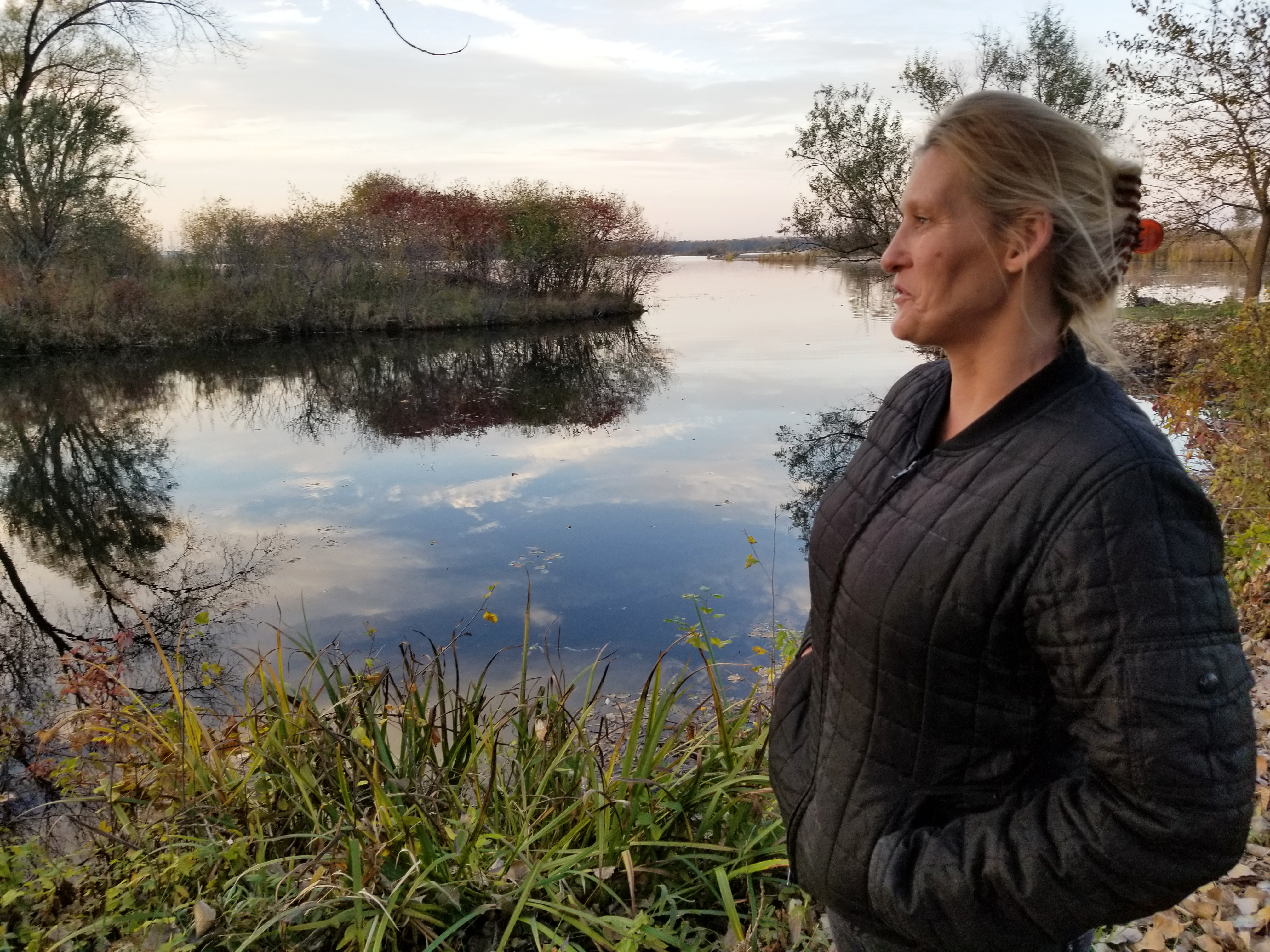
Harbor Point Estates, the only trailer park within Chicago city limits, opened in 1950 along the shores of Wolf Lake. Originally known as the “Island Park Trailer Court,” early residents included school teachers, soldiers and construction workers building the Chicago Skyway at the time. The Chicago Daily Calumet newspaper declared it was “as pretty a setting as can be found anywhere,” and found it to be “a community of happy people.” Originally, everyone was a homeowner.
Today, Edna McWilliams and her husband have by far the best lot at Harbor Point. Her back yard is lakefront property (“Sssshhhh!” she says). It’s owned by the Department of Natural Resources. Eagles, deer, beaver and wild turtles visit. “I actually had the alderman once tell me if we ever decide to get rid of our place, let her know, she wants first dibs,” says Edna, who’s lived on this spot 23 years. Three generations of her family have lived in this trailer park. Her mom had a home here for a while when Edna was a teen; her son has a place down the block.
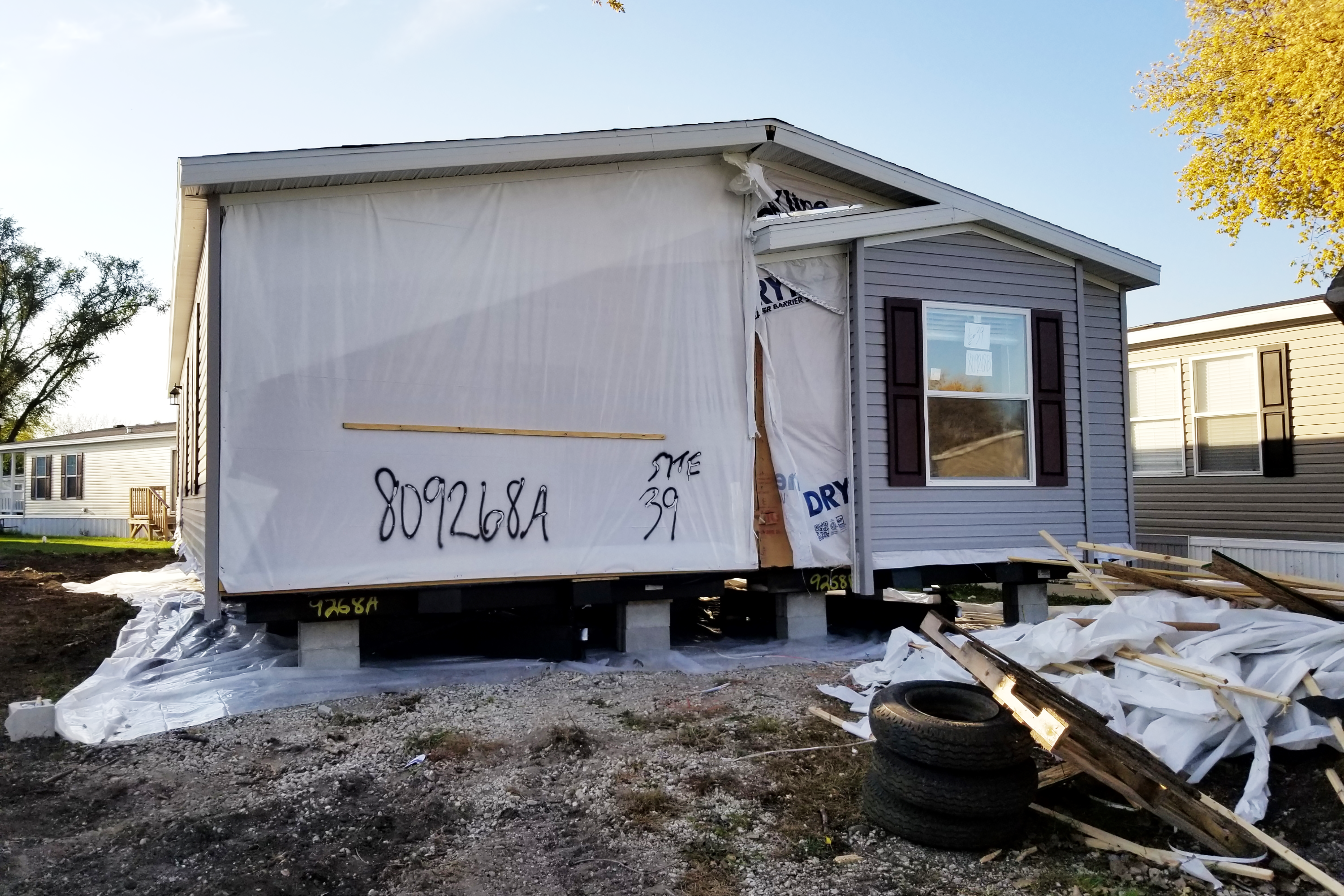
Harbor Point Estates is expanding. It has plans to add more than 150 homes to vacant land on the property. For $90,000, homeowners get a brand-new 1,200-square-foot home with the latest finishes, air conditioning, and new stainless steel appliances.
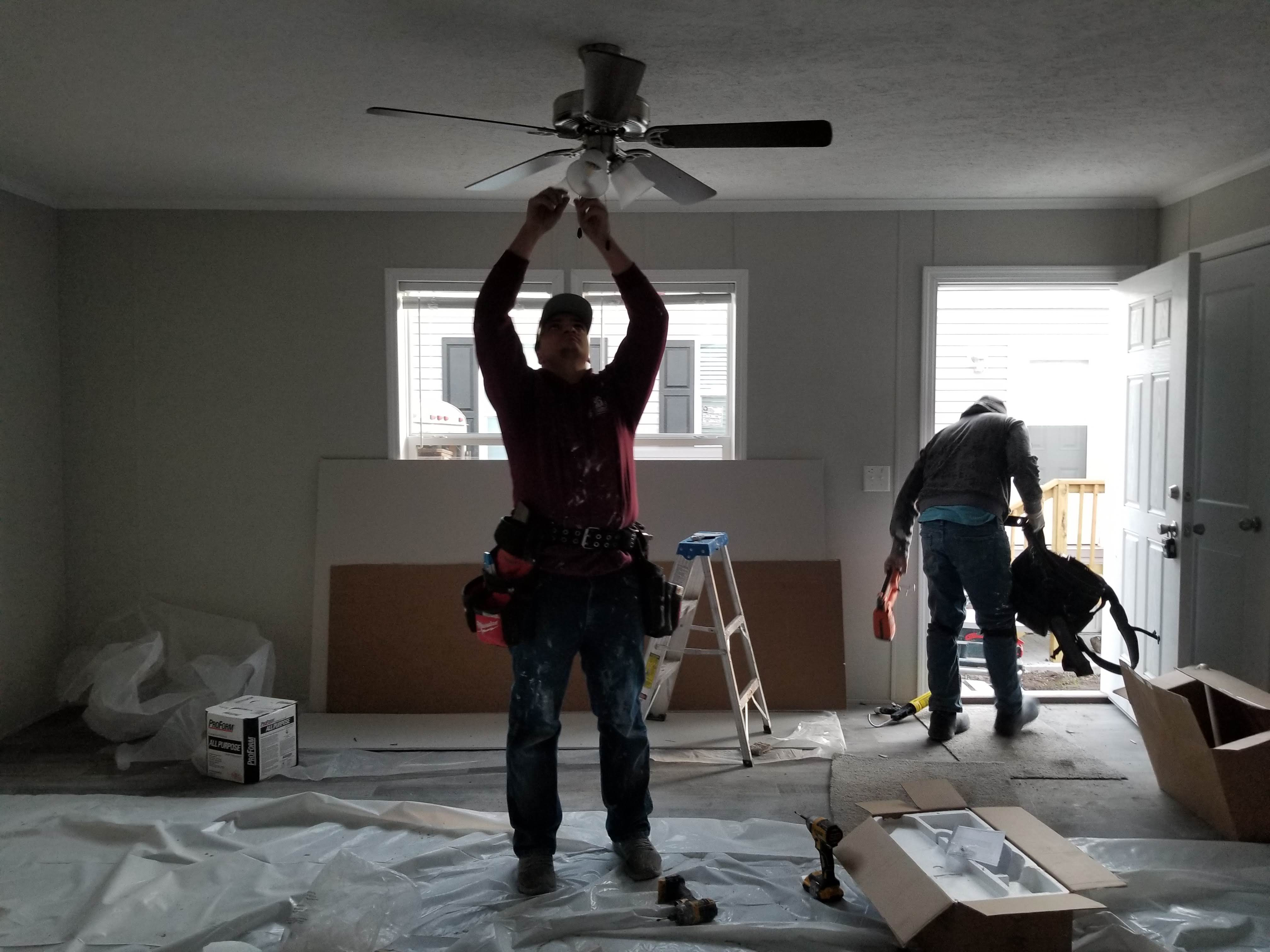
In a trend happening throughout the country, large companies are buying mobile home parks and significantly raising lot rents. Harbor Point is owned by Ravinia Communities. The Northbrook-based company says on its web site it owns 5,000 mobile home lots in 10 states.
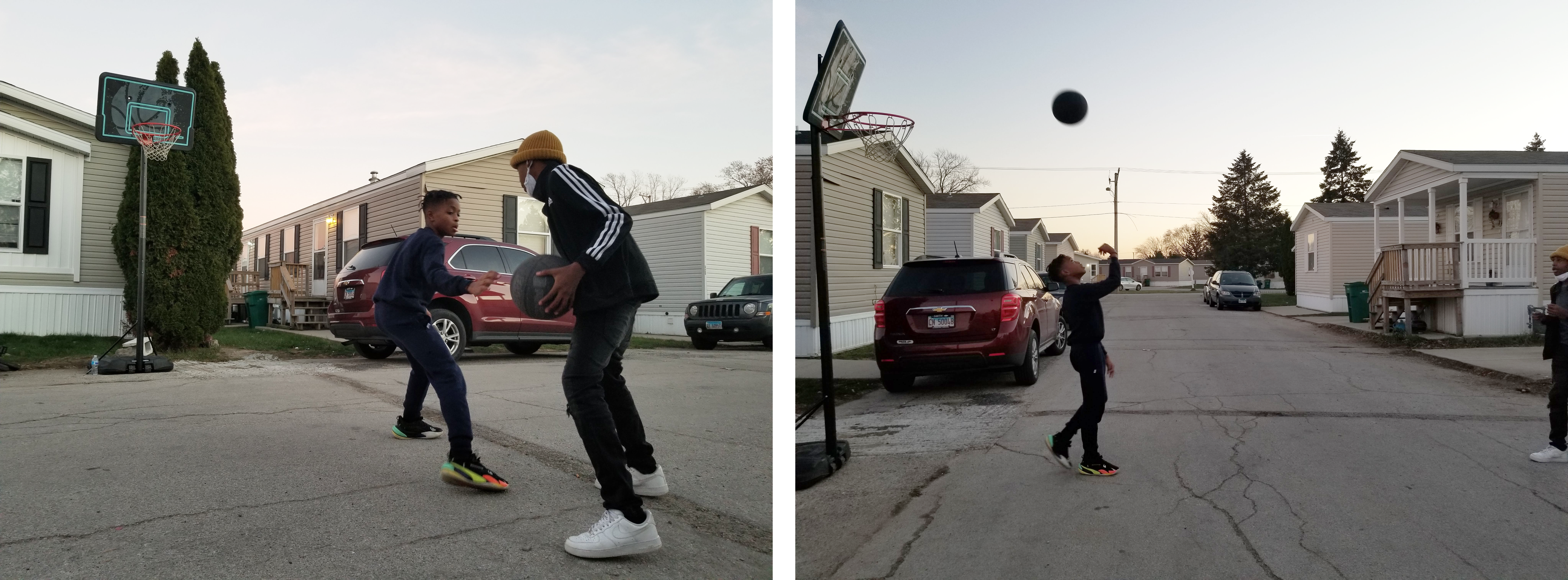
Two friends, ages 12 and 13, play basketball after school at Harbor Point Estates. If you ask the 12-year-old what he thinks of his family’s move to Harbor Point, it’s all about safety, “Where I was at first, it wasn’t a good place.” The family had been at 80th and Ellis. “That’s why my mom moved.”
Sheila Chandler, property manager here, says many Harbor Point residents move from other Chicago neighborhoods “so their kids can feel safe. We get that a lot, ‘I’ve got to hurry up and get away, I’m dodging bullets.’ It’s not like that around here.”
Ashley, the mother of the 13-year-old, says she’s comfortable letting her son come outside to play basketball. “I don’t feel like I have to watch him so much as I would if I was living somewhere else,” she says.
Her view is pine trees and trailers. She has a deck attached to the house, right off the kitchen. “In the summer I light up the tikis and I have lights going around as well, so I plug those in and sit out here and drink wine. We eat out here and stuff like that.”
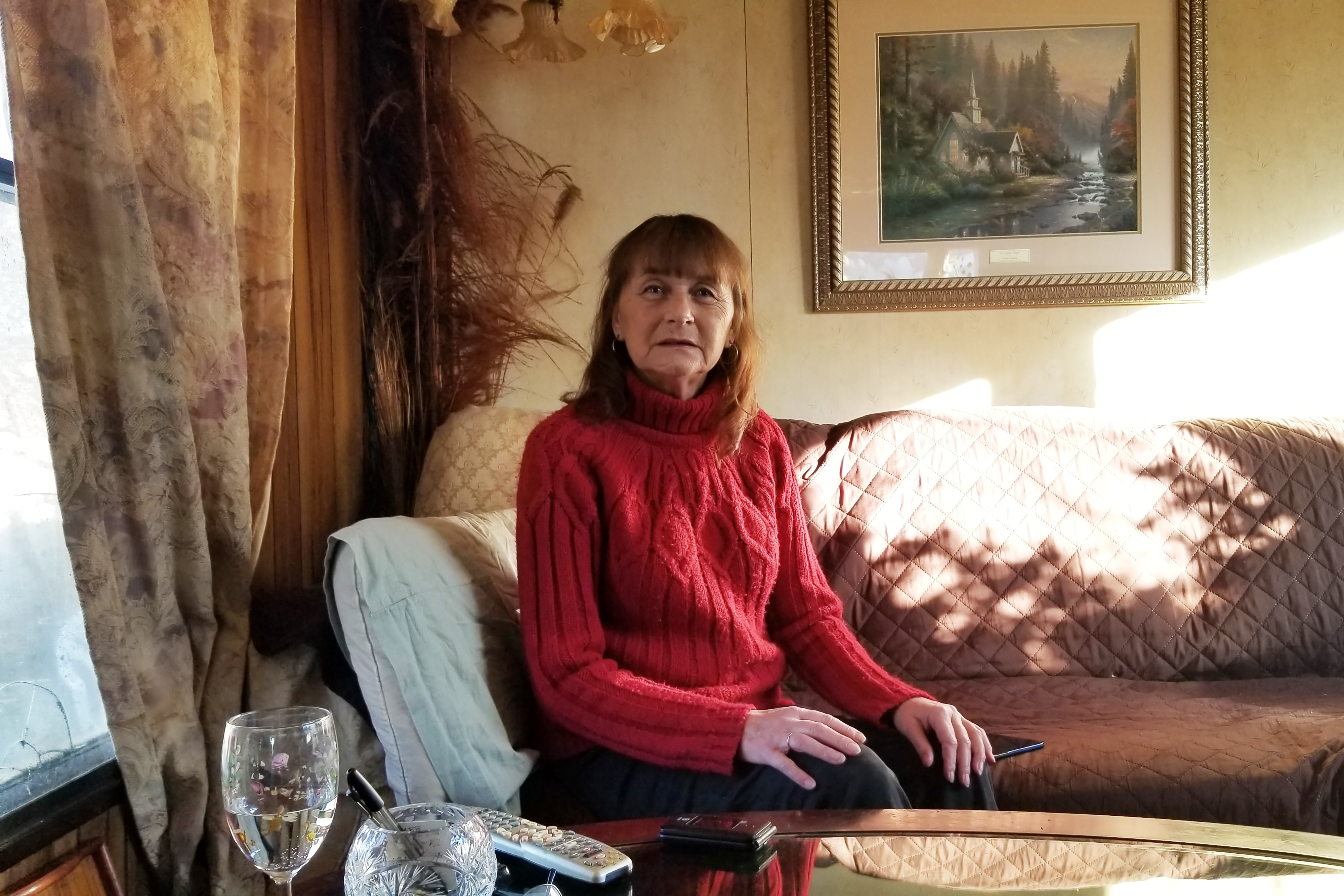
Terry Nelson poses in her living room in the Rand Road Community in Des Plaines. She bought her home (she hates the word trailer!) lease-to-own when she was in her 20s. Terry is president of the Manufactured Home Owners Association of Illinois, which makes her a sort of unofficial, at-large representative of everyone who’s ever bought a mobile home in Illinois. She’s in Springfield every session, and she figures she’s visited some 400 mobile home communities in the state, helping homeowners fight rent increases or demand better infrastructure. (Park owners are responsible for lots of services a city would normally handle, from fixing potholes to erecting street lights.)
Terry is also on a campaign against the stigma mobile home communities face: “I think [the] stigma is not just on our housing market, but [in] America I think people need someone … lower on the ladder than them.” She blasts cities and counties that prohibit mobile home communities, saying officials “haven’t been in communities to see.”
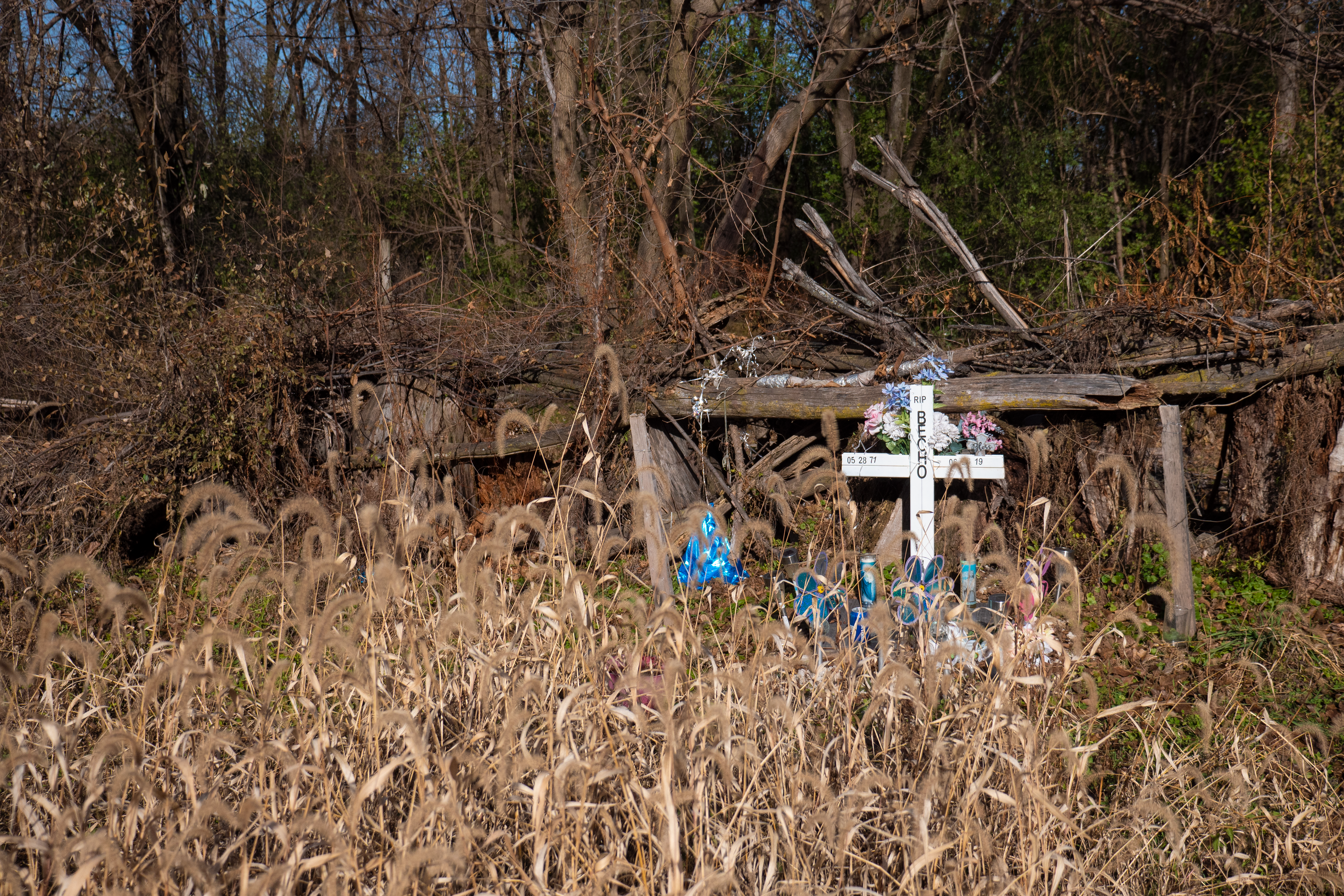
Lots of trailer parks abut public land or unincorporated places. Broadway Estates is situated against train tracks and the Cal-Sag Channel, known as “the canal.” Residents use the back of the park for picnics, a drink after work, or to fix their cars. Francisco Javier Avila used to farm back here. He was killed while at work in 2019 and his family erected this small memorial on a plot of land where he used to plant corn and beans.
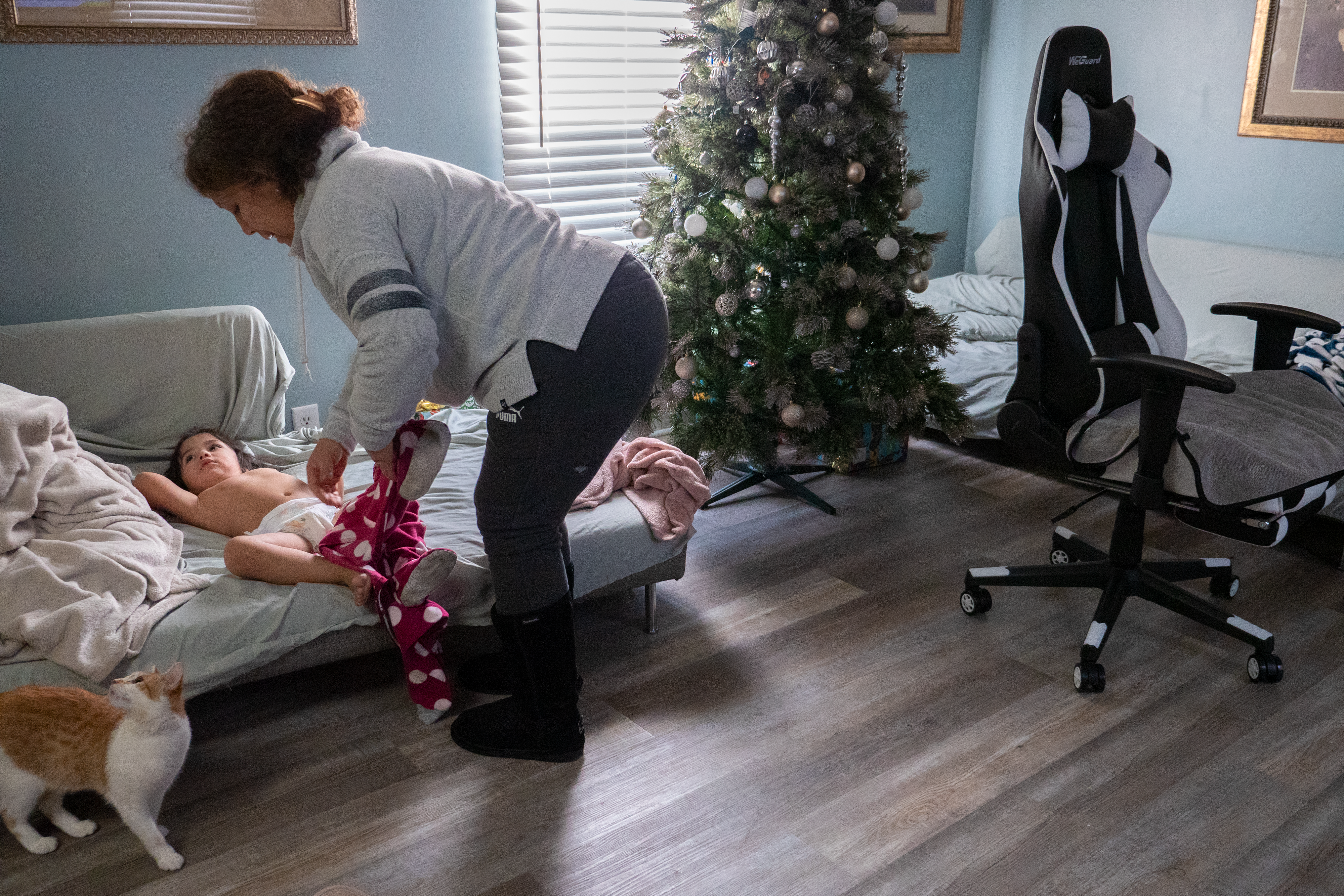
Maricela Nuñez bought her trailer for $8,000; she’s paying it off over three years. She lives at Broadway Estates with a slew of kids and grandkids. “Me gusta mi traila, sí, me gusta mucho,” she says.
On a little tour, she shows off her washer and dryer, an altar to her favorite saints, her spacious kitchen pantry. Maricela once moved from Broadway Estates to East Chicago and lived in a house for a while. But she says she liked it better here and came back. Her sons have been remodeling a little — they put down new flooring for instance — and it needs more work.
Even though Maricela’s trailer cost just $8,000, it’s hers, it’s home. It’s in a community she’s a part of, and she has dreams for it — she’s looking at a new ceiling fan, thinking about the cabinets. And the trim she plans to paint herself — she’s going with white, she says.
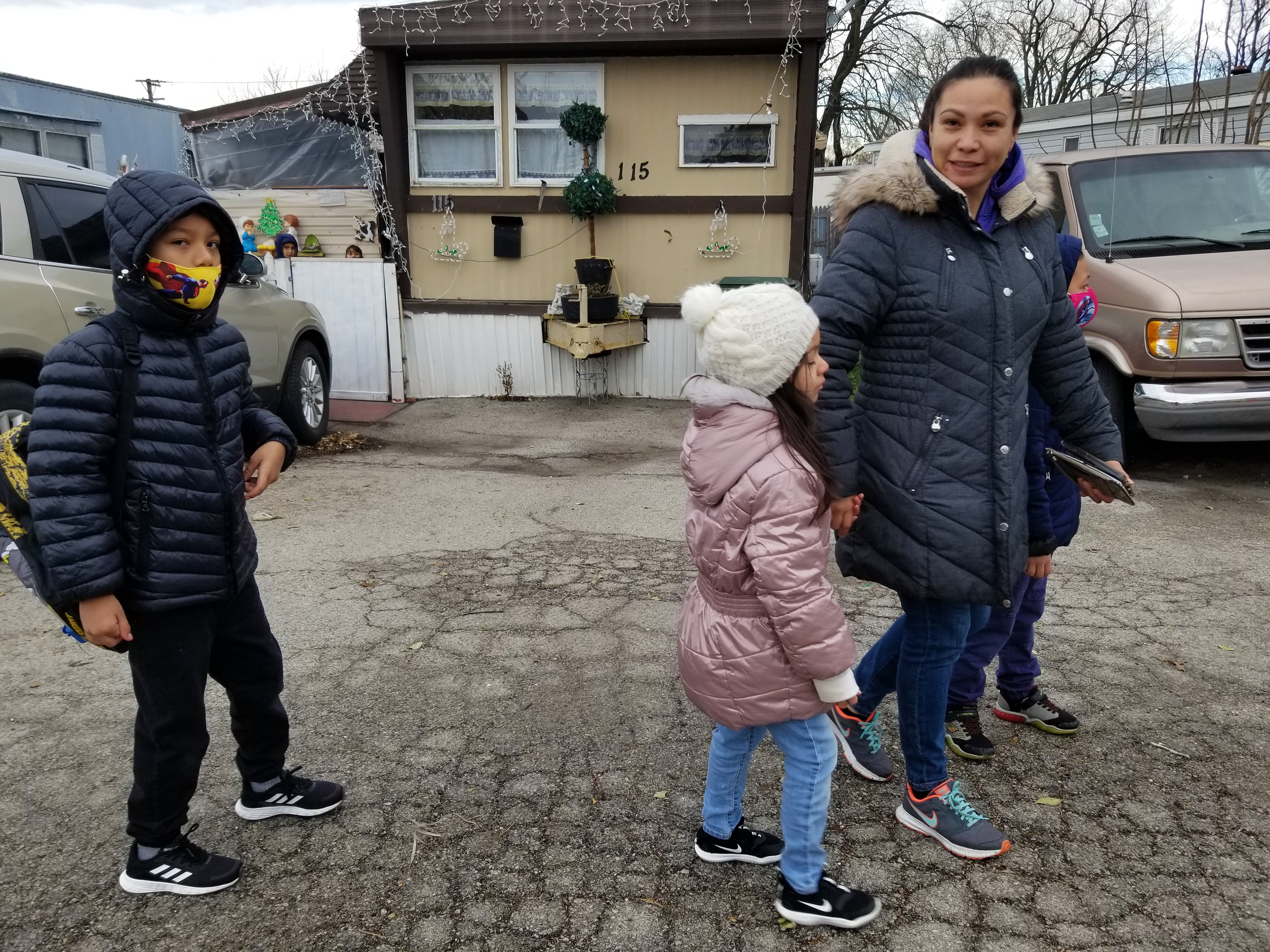
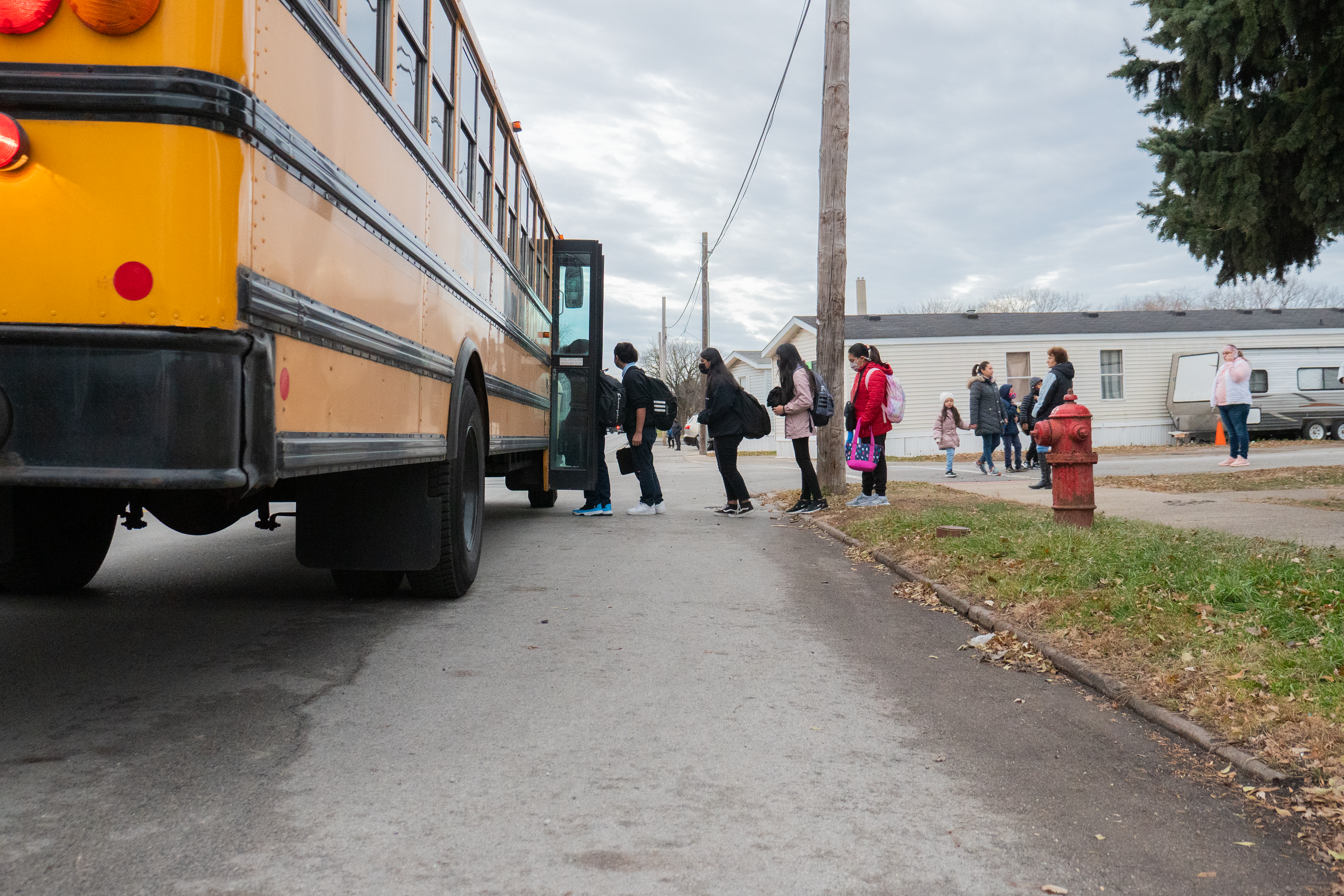
Kids board the school bus outside Broadway Estates in Blue Island. Some kids we talked to have loved growing up in the trailer park. Take Joel, for instance, age 13. “A neighborhood with trailers, it feels more like a family in there,” he said. “Living in a real neighborhood with real houses, I wouldn’t really like it because — you go outside and everything? There's barely not a lot of kids to play with. Living in the trailers, you actually get the sense of security that you could actually go to somebody and talk to them.”
Alex, age 18, also lives at “2800 Broadway,” which is what most residents call the community, either that or las trailas. He’s proud of where he’s from, but has also felt the stigma society assigns to neighborhoods like his.
“We stick out,” he says. “My younger self, I would tend to avoid talking about where I live. Since I was very young I was afraid of what people thought about my household. I guess it's not normal for people to come out living from a trailer park. A lot of people tend to grow up in big houses.”
He recalls other kids from his school trying to hide the fact that they lived in a mobile home community. When they got off the school bus, he remembers, “they’d just walk around the houses and then try to sneak their way into the trailer park so none of the older kids from the houses see them walking into the trailer park, and they’re figuring out that they live here.”
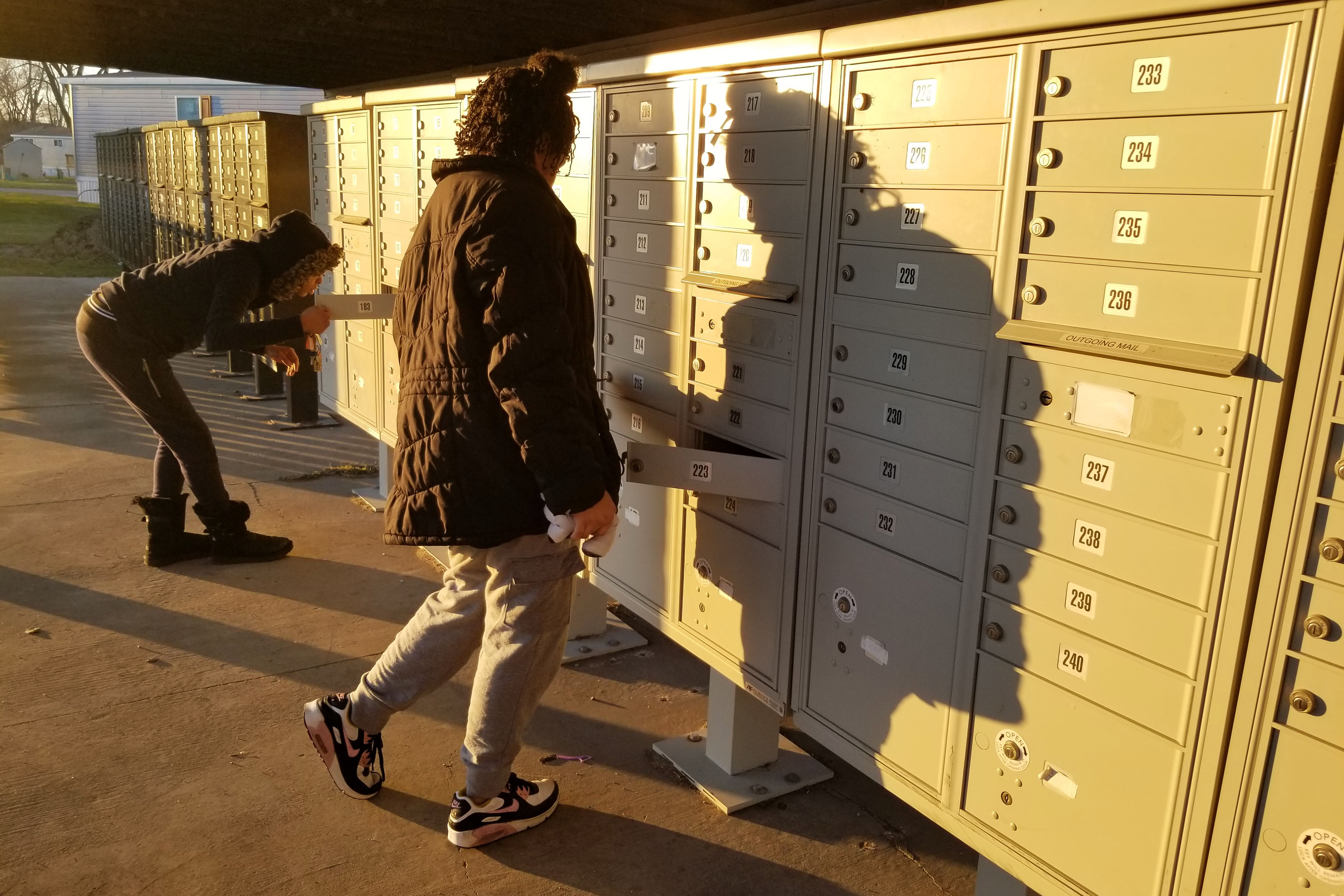
Residents check their mailboxes on the north side of Harbor Point Estates.
Ironically, Chicago’s only trailer park could not be created today. The city’s zoning rules prohibit long-term living in manufactured housing. Harbor Point Estates is the one exception.
10th Ward Alderwoman Sue Sadlowski Garza questions why that is. She grew up nearby. “I’m proud to have the only mobile home park. I know a lot of people in there,” she says.
“It’s affordable, and it’s also instantaneous. You don’t have to wait eight months to build a home. You bring it in on a trailer, you hook it up to the sewer and the electric – and you’re done.” Garza says mobile homes could be a part of the solution for homelessness or the affordability crisis.
She says Chicago should consider scrapping its prohibition against them.
“I'd like to see the city take a look at it and see if we could change the zoning so we can put these other places,” Garza says.
Linda Lutton covers Chicago neighborhoods for WBEZ. Follow her @lindalutton.


